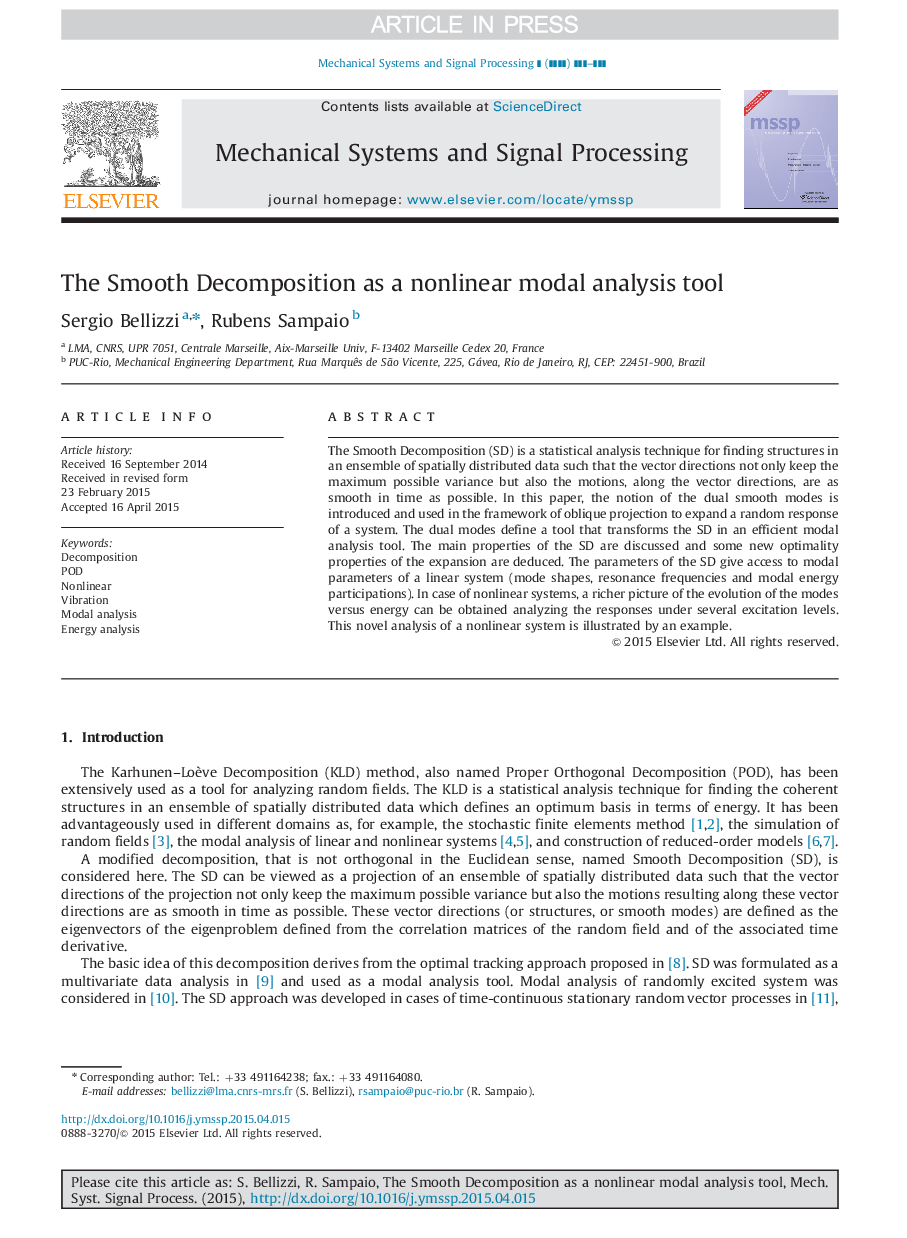| Article ID | Journal | Published Year | Pages | File Type |
|---|---|---|---|---|
| 6955823 | Mechanical Systems and Signal Processing | 2015 | 12 Pages |
Abstract
The Smooth Decomposition (SD) is a statistical analysis technique for finding structures in an ensemble of spatially distributed data such that the vector directions not only keep the maximum possible variance but also the motions, along the vector directions, are as smooth in time as possible. In this paper, the notion of the dual smooth modes is introduced and used in the framework of oblique projection to expand a random response of a system. The dual modes define a tool that transforms the SD in an efficient modal analysis tool. The main properties of the SD are discussed and some new optimality properties of the expansion are deduced. The parameters of the SD give access to modal parameters of a linear system (mode shapes, resonance frequencies and modal energy participations). In case of nonlinear systems, a richer picture of the evolution of the modes versus energy can be obtained analyzing the responses under several excitation levels. This novel analysis of a nonlinear system is illustrated by an example.
Related Topics
Physical Sciences and Engineering
Computer Science
Signal Processing
Authors
Sergio Bellizzi, Rubens Sampaio,
